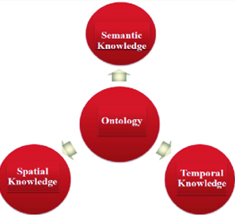Ontology-Based Semantic Knowledge for Context-Aware Autonomous Indoor Robot Navigation
Keywords:
Autonomous Navigation, Ontology, Semantic Knowledge Representation, Context-Aware RoboticsAbstract
Autonomous indoor navigation remains a critical challenge in robotics, particularly in dynamic environments where robots must interact safely and efficiently with humans and obstacles. This study investigates the integration of ontology-based knowledge representation with sampling-based path planning to enhance context-aware robotic navigation. By leveraging semantic knowledge and spatio-temporal reasoning, the proposed system enables robots to interpret their environment, anticipate potential obstacles, and dynamically re-plan paths to achieve collision-free navigation. Experimental results demonstrate that the ontology-enabled RRT* algorithm outperforms the baseline geometric RRT* in path efficiency, travel time, and collision reduction across multiple indoor scenarios. Additionally, the system achieves high semantic reasoning accuracy, supporting reliable interpretation of environmental relationships and task-relevant knowledge. These findings highlight the value of incorporating semantic reasoning into autonomous navigation systems and suggest that ontology-based approaches can significantly improve robot performance, safety, and adaptability in real-world indoor environments. The study provides a foundation for future research in cognitive robotics, human-robot interaction, and intelligent autonomous systems.


